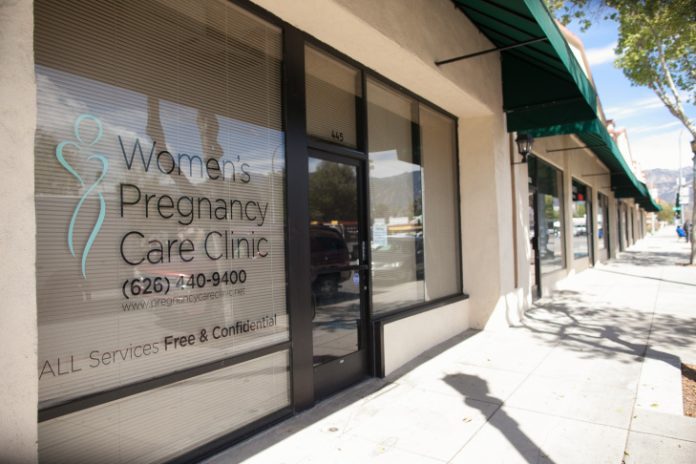Troy A. Sambajon
National Beat Reporter
The Associated Students (AS) Human Rights Board’s Students for Reproductive Justice (SRJ) is conducting an anonymous survey regarding the community’s experiences with Crisis Pregnancy Centers (CPCs).
CPCs, sometimes known as anti-abortion centers (AACs) are organizations that pose as health or reproductive clinics but do not offer the medical services advertised, nor do they maintain client confidentiality. “CPCs are typically funded by religious organizations but are not medically licensed.”
For busy college students struggling to make decisions about their reproductive health, CPCs could mislead vulnerable students with medical misinformation and push a political agenda around reproductive rights.
For your own information and safety, Santa Barbara’s local CPC is Network Medical Women’s Center in Goleta, CA. The SRJ’s “survey is intended for people who have experience with Network Medical in Santa Barbara or other Crisis Pregnancy Centers.”
The Bottom Line sat down with Teannae Lucas, one of the co-directors of UC Santa Barbara (UCSB’s) Students for Reproductive Justice, who is planning a greater outreach and awareness campaign around CPCs.
Lucas said that CPCs often portray themselves as legitimate medical facilities to receive reproductive health care. In reality, “[CPCs] attempt to lure people who are pregnant, or may think they’re pregnant, and then to push them towards keeping their children as opposed to having the full understanding of all their reproductive choices they may have when they’re pregnant.”
“You should be able to make a full decision about what you want to do without being pushed or [construed] either way,” said Lucas.
According to Expose Fake Clinics, in the United States, there are about 3,000 fake clinics across the country versus fewer than “800 actual abortion & reproductive health clinics.” Fake clinics often self-promote as medical facilities, “yet they don’t practice medicine (outside of an occasional ultrasound or STI test), nor do they use medical facts or standardized ethics. More and more,” these “places are funded by taxpayer dollars, impacting poor women and people of color the most.”
Despite their ability to conduct smaller procedures like pregnancy tests or STI screenings, many CPCs don’t have staff trained for the medical procedures they advertise. This means that sensitive information cannot be totally confidential because they’re not constrained by the Health Insurance Portability and Accountability Act (HIPAA).
Although CPCs continue to misinform vulnerable students, Lucas remains adamantly optimistic about the SRJ’s work to shed light upon this issue in our community. “Hopefully with education and awareness […] they will be pushed out and [not] have their grips on our community,” said Lucas.
This is not the first time that UCSB and AS have stood up to CPCs. In 2012, AS passed a bill forbidding Crisis Pregnancy Centers from advertising on campus. Due to conflicts with the promotional distributors, CPC flyers remained on-campus even until last quarter.
For accessible resources for reproductive health, Student Health Services (SHS) has a fully equipped medical staff of doctors, educators, and emergency contraceptives. If you have UC SHIP insurance, emergency contraceptives are only $10 at SHS and the I.V. Pardall Center. The SRJ also provides emergency contraception and can even deliver these to you in I.V.
For more information on the Students for Reproductive Justice and their upcoming events, follow them on their Instagram @srjucsb. If you feel comfortable anonymously sharing your experiences with Network Medical or another CPC, click here for the SRJ’s survey.











